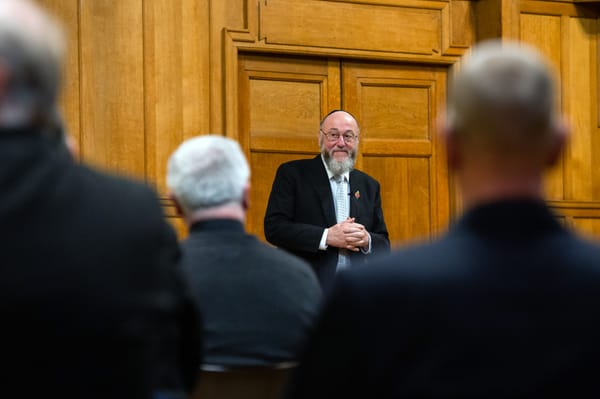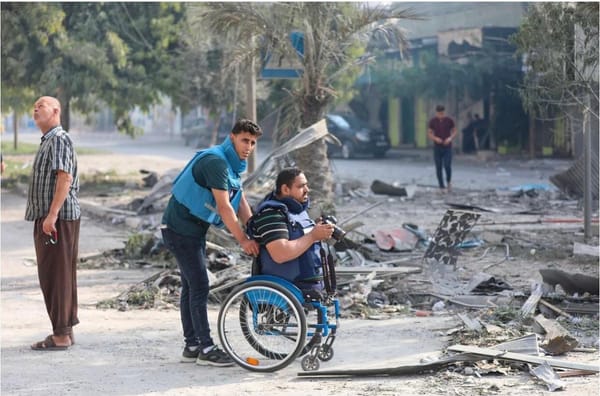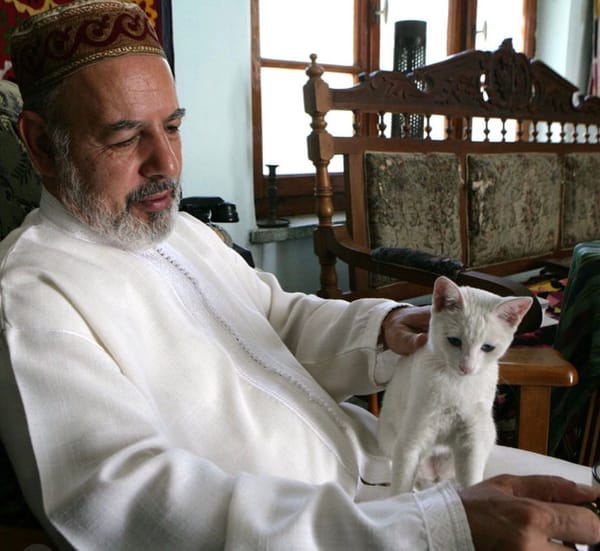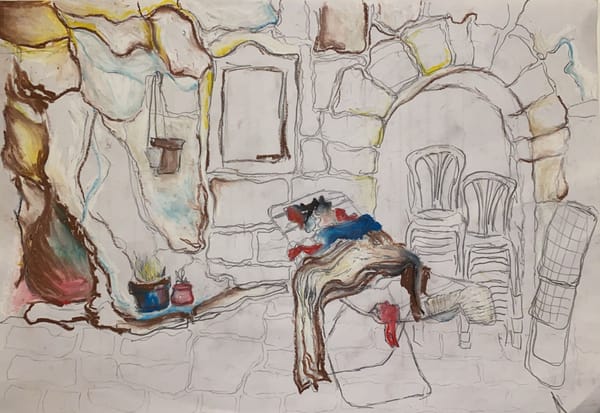Live from the Oxford encampment
"We camp to show the world that we will not accept business as usual."
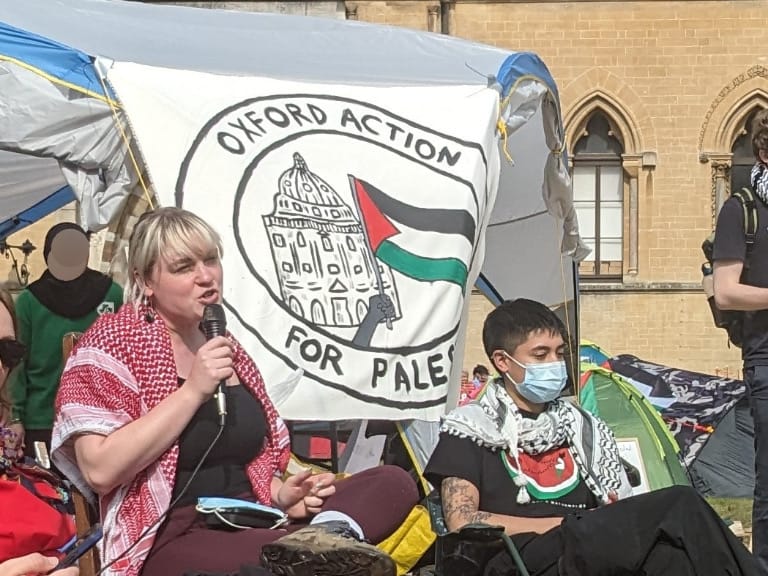
Hadeel is a 22-year-old pharmacy student in Gaza. She’s currently fundraising for her family to evacuate, after the complete destruction of her home and former life. As I type these words, Israel is escalating its campaign in Rafah, pushing ever further towards the end point of this genocide. I don’t know where Hadeel is right now, or how she’s doing. She has sent me photos of young children covered in insect bites and rashes. I’ve asked her to provide me with updates whenever she can, and she responded “I will be here in contact with you if we survive inshallah.”
I met Hadeel via Instagram this week, after my inbox was flooded with messages like hers. This Monday, I participated in the launch of Oxford Action for Palestine’s solidarity encampment, and I’m writing this piece from inside of my tent on the lawn of the Pitt Rivers Museum. After my interview with Al Jazeera went viral, I was honoured to receive hundreds of messages from people around the world expressing solidarity with our action. Most importantly, I’ve had the opportunity to engage with the people for whom this action is intended – people like Hadeel.
This week has been extraordinarily difficult and emotional. Although the Oxford encampment is yet to experience policing to the extent of our comrades in the United States, we have constantly fended off hostility and security risks. As a collective of university students and faculty, we have made the commitment to keep each other safe. I find myself looking around the sea of tents, and I feel the enormity of this commitment weigh upon me. We’re running a community – under constant threat of dismantlement – completely on our own. I feel the constant ripples of anxiety and fear among my fellow campers, and yet, our numbers continue to grow by the day. On our last count, we had over 500 members of the Oxford community onboarded into camp in some capacity. And it is because of our commitment to Hadeel and her family, our commitment to the people of Gaza, that these numbers will only continue to multiply in the coming days.
Each wing of our operation has a dedicated team, from logistics to security to programming. I spend my days in camp as a member of our press team, and usually can be found inside the Shireen Abu Akleh media tent, along with an entire contingency of students who are helping to manage our action’s external presence. Impressively, solidarity encampments around the globe have used a similar playbook, creating entire branches of the community to deal with social media and press. The unique aspect of the communications role at camp is the way that we engage with the rest of the world, providing a direct window into why we’re taking this action in the first place. As much as our camp exists to pressure the university into disclosure and divestment, we also camp to show the world that we’re here: to show the world that we will not accept business as usual, and to show Palestinians that we will stand with them until the day of their full liberation from occupation and apartheid.
Although my international visibility has been a net positive, I can’t help but critique the forces propelling my click rates. With every comment and like, I feel the conversation being dragged away from Rafah and towards myself. The media individualises us, choosing to focus on the narratives of singular actors, when this story can only be told from a collective point of view. I am nothing without my fellow activists, and our common goal could not be more clear: we are here to support the liberation of the Palestinian people. The international media intentionally frames campus protests outside of this context, choosing to slot them into debates about campus safety to distract from their true purpose.
But when I check my inbox, our purpose could not be clearer. Throughout the day, I have to take breaks to crawl into my tent and let myself fall apart. I lay flat and stare at the flimsy roof, while my chest heaves and the tears come. My body has to feel the anguish and horror, or else I’m not sure how I could live with myself. How can you read a message like Hadeel’s and carry on? How can you read such a message and continue to maintain the systems and structures at the root of her suffering? I don’t have answers to these questions, and I doubt that I ever will. But in this encampment, I have found a way to participate in a global rejection of these questions and their implications. We do not have to carry on, and in fact, we must not. We must let ourselves fall apart and feel the horror of this genocide. And then we must do whatever we can to stop it.▼
Kendall Gardner is an editor at Vashti and a doctoral candidate in political theory at the University of Oxford.

